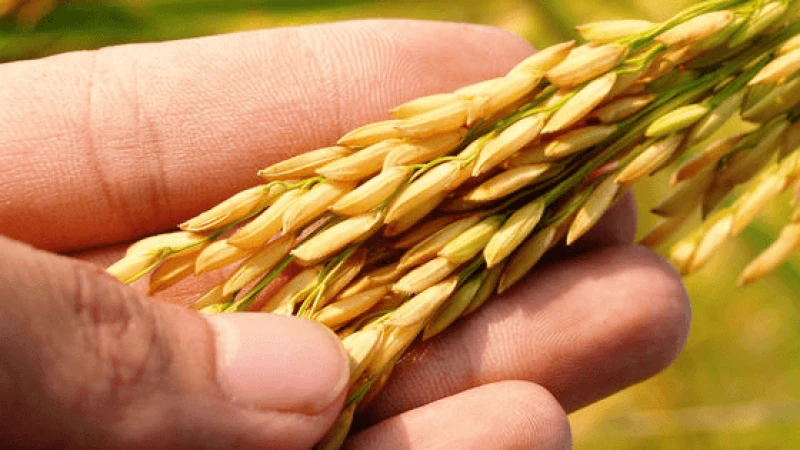From food waste to plastic-free biodegradables? Leftover rice byproducts might be key to sustainable packaging
From food waste to plastic-free biodegradables? Leftover rice byproducts might be key to sustainable packaging


You know that protective outer layer you toss out before cooking rice? Scientists at Kyungpook National University in South Korea have found a clever way to turn this common kitchen scrap into a sustainable packaging superhero, according to research published in the Journal of Bioresources and Bioproducts.
By treating rice husks with a special chemical process and then mixing in an enzyme cocktail, the team extracted strong, water-resistant nanofibers. These tiny fibers are like the building blocks of the ultimate green packaging material when combined with chitosan, a natural compound derived from crustacean shells.
The resulting chitosan-based composite films are not only sturdy and durable but also completely biodegradable. That means they could help tackle our global plastic waste problem head-on by offering an Earth-friendly alternative to traditional food packaging.
As more and more consumers demand greener options, the rice husk packaging could be a game-changer for the food industry. It’s just one example of how small changes in our daily lives — like finding new uses for kitchen scraps — can add up to a big impact in the fight against rising global temperatures.
So the next time you’re whipping up a batch of rice, remember — that humble husk might just hold the key to a cleaner, greener future.
This is an excerpt. Read the original post here

 | Videos | More... |

Video: Nuclear energy will destroy us? Global warming is an existential threat? Chemicals are massacring bees? Donate to the Green Industrial Complex!
 | Bees & Pollinators | More... |

GLP podcast: Science journalism is a mess. Here’s how to fix it

Mosquito massacre: Can we safely tackle malaria with a CRISPR gene drive?

Are we facing an ‘Insect Apocalypse’ caused by ‘intensive, industrial’ farming and agricultural chemicals? The media say yes; Science says ‘no’
 | Infographics | More... |

Infographic: Global regulatory and health research agencies on whether glyphosate causes cancer
 | GMO FAQs | More... |

Why is there controversy over GMO foods but not GMO drugs?

How are GMOs labeled around the world?

How does genetic engineering differ from conventional breeding?
 | GLP Profiles | More... |

Alex Jones: Right-wing conspiracy theorist stokes fear of GMOs, pesticides to sell ‘health supplements’




 Viewpoint — Fact checking MAHA mythmakers: How wellness influencers and RFK, Jr. undermine American science and health
Viewpoint — Fact checking MAHA mythmakers: How wellness influencers and RFK, Jr. undermine American science and health Viewpoint: Video — Big Solar is gobbling up productive agricultural land and hurting farmers yet providing little energy or sustainabilty gains
Viewpoint: Video — Big Solar is gobbling up productive agricultural land and hurting farmers yet providing little energy or sustainabilty gains Fighting deforestation with CO2: Biotechnology breakthrough creates sustainable palm oil alternative for cosmetics
Fighting deforestation with CO2: Biotechnology breakthrough creates sustainable palm oil alternative for cosmetics Trust issues: What happens when therapists use ChatGPT?
Trust issues: What happens when therapists use ChatGPT? 30-year-old tomato line shows genetic resistance to devastating virus
30-year-old tomato line shows genetic resistance to devastating virus California, Washington, Oregon forge immunization alliance to safeguard vaccine access against federal undermining
California, Washington, Oregon forge immunization alliance to safeguard vaccine access against federal undermining The free-range chicken dilemma: Better for birds, but with substantial costs
The free-range chicken dilemma: Better for birds, but with substantial costs ‘You have to treat the brain first’: Rethinking chronic pain with Sanjay Gupta
‘You have to treat the brain first’: Rethinking chronic pain with Sanjay Gupta
